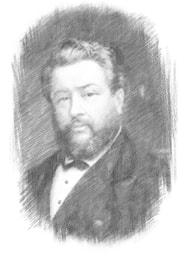I Timothy 1
This morning I read 1 Timothy 1:1-2:
Paul, an apostle of Christ Jesus according to the commandment of God our Savior, and of Christ Jesus, who is our hope, to Timothy, my true child in the faith: Grace, mercy and peace from God the Father and Christ Jesus our Lord.
The word that leapt out to me is what is here rendered “true child.” In Greek, the word is γνησιος (gnesios). Its primary definition is “born in wedlock,” and from that idea we get the concepts of legitimate, genuine, or “true child.”
Skipping too quickly over this word means missing out on something I think Paul is doing here. Remember, this letter will not be read privately by Timothy, but aloud to the Church over which he is overseer. As such it is a message both for Timothy and Timothy’s Church. And Paul referring to Timothy as his “born in wedlock” child of faith is a pretty unmistakable public affirmation–not unlike, really, the affirmation that the Father speaks to Jesus when He says, “This is my son, whom I love.” “See this young man,” Paul says, “he’s my child in the faith. He is my partner and representative. I believe in him, and so should you.”
--J Michael Rios; Toolshed Meditations; To Encourage & Affirm; 6.29.18
Paul, an apostle of Christ Jesus according to the commandment of God our Savior, and of Christ Jesus, who is our hope, to Timothy, my true child in the faith: Grace, mercy and peace from God the Father and Christ Jesus our Lord.
The word that leapt out to me is what is here rendered “true child.” In Greek, the word is γνησιος (gnesios). Its primary definition is “born in wedlock,” and from that idea we get the concepts of legitimate, genuine, or “true child.”
Skipping too quickly over this word means missing out on something I think Paul is doing here. Remember, this letter will not be read privately by Timothy, but aloud to the Church over which he is overseer. As such it is a message both for Timothy and Timothy’s Church. And Paul referring to Timothy as his “born in wedlock” child of faith is a pretty unmistakable public affirmation–not unlike, really, the affirmation that the Father speaks to Jesus when He says, “This is my son, whom I love.” “See this young man,” Paul says, “he’s my child in the faith. He is my partner and representative. I believe in him, and so should you.”
--J Michael Rios; Toolshed Meditations; To Encourage & Affirm; 6.29.18
|
I Tim 1:3-7:
As I urged you when I went into Macedonia—remain in Ephesus that you may charge some that they teach no other doctrine, 4 nor give heed to fables and endless genealogies, which cause disputes rather than godly edification which is in faith. 5 Now the purpose of the commandment is love from a pure heart, from a good conscience, and from sincere faith, 6 from which some, having strayed, have turned aside to idle talk, 7 desiring to be teachers of the law, understanding neither what they say nor the things which they affirm. |
"God is not the author of confusion. His truth is clear and discernable by the regenerate heart. On the other hand, our enemy, being the source of lies and deception, must create a climate in which what his false teachers expound is disguised as the truth and there will be attempts by those defending these false teachings to demand tolerance so that their error will not be open to detailed scrutiny. It is all a paradigm of smoke and mirrors. Rob Bell has taught, for instance, that it is wrong to use the Bible as our plumb line, our standard of truth. Whenever any of us address these things he says, out come his defenders with their smoke and mirrors attempting to redirect the focus from Bell to those demanding that he be held to account as a false teacher. They call us divisive and all sorts of other things in their attempt to deflect our scrutiny. The Church must withstand false teachers. Just because they preach with assurance does not mean they are right and that the source of what they are teaching is from God.
--Mike Ratliffe |
 Charles Spurgeon
Charles Spurgeon
"How remarkable the times repeat themselves. When the same evils come, we must apply to them the same remedies. When a disease appears that has done deadly mischief in past times, physicians inquire for medicines that on a former occasion curbed that enemy. We are bound to do the same in spiritual matters. We must see what Paul did in his day when the malaria of false doctrine is in the air… Let us not talk of inventing wise measures for the for the present distress in the spiritual world, but let us use the great remedy that was so effectual in Paul’s day". --Charles Spurgeon
|
I Timothy 1:8-11:
But we know that the law is good if one uses it lawfully, knowing this: that the law is not made for a righteous person, but for the lawless and insubordinate, for the ungodly and for sinners, for the unholy and profane, for murderers of fathers and murderers of mothers, for manslayers, for fornicators, for sodomites, for kidnappers, for liars, for perjurers, and if there is any other thing that is contrary to sound doctrine, according to the glorious gospel of the blessed God which was committed to my trust. |
When anyone suggests that God gave the Old Testament law as a saving instrument, he shows a basic misunderstanding of the law. God gave the law as a good thing to be used the right way. He did not offer it as something that can save those who try hard to keep it. He gave it to show how far short of his requirements everyone has fallen and therefore how desperately everyone needs a Savior. (See Romans 3:19-20
|
 Lesli White
Lesli White
If the devil can get you to believe the physical world is more real than the spiritual world, he can trick you into pursuing things like money, power and fame and have you believing that materialistic things are more important than being in a relationship with God. If you think this, then you won’t seek first the kingdom of God. But there is far more greatness in God’s Heavenly Kingdom than any material possession we acquire while in physical form on Earth.
In 1 Timothy 1:9-11, lying is listed as something that is practiced by the lawless. Just as there are people around you who will lie to avoid confronting the truth, there are people who will buy into lies in order to avoid God’s truth. While the devil lies constantly, God never does. In fact, He is the source of truth. Hebrews 6:18 tells us, “It is impossible for God to lie.” Jesus tells us He is the way, the truth and the life. As followers of Jesus, we are called to be people of truth. Believing these lies keeps us from fully living this.
--Leslie White; Belief.Net: 6 Lies Satan Wants You to Believe About God
In 1 Timothy 1:9-11, lying is listed as something that is practiced by the lawless. Just as there are people around you who will lie to avoid confronting the truth, there are people who will buy into lies in order to avoid God’s truth. While the devil lies constantly, God never does. In fact, He is the source of truth. Hebrews 6:18 tells us, “It is impossible for God to lie.” Jesus tells us He is the way, the truth and the life. As followers of Jesus, we are called to be people of truth. Believing these lies keeps us from fully living this.
--Leslie White; Belief.Net: 6 Lies Satan Wants You to Believe About God

It is undoubtedly true that almost always when Paul refers to "law" or "the law," he has in view the body of legislation given by God through Moses to Israel at Sinai, that legislation marking out the period of covenant history until Christ. He is also clear that, as a specific codification belonging to that era, the law has been terminated in its entirety by Christ in his coming (e.g. Rom. 6:14; 7:6; 10:4; 2 Cor. 3:6-11; Gal. 3:17-25). At the same time, however, it seems difficult to deny that in a statement like Romans 7:12 . . . or in Romans 13:9, where several of the ten commandments function as exhortation incumbent on the church . . . Paul recognizes that at its moral core, the "Torah in the Torah" as it could be put, the Mosaic law specifies imperatives that transcend the Mosaic economy. Included within that law are imperatives that are bound up with the indicative of the creator-creature relationship from the beginning and, so, are enduring because of who God is. In its central commands the law given at Sinai, notably the Decalogue, reveals God's will, inherent in his person and so incumbent on his image-bearing creature as such, regardless of time and place, on non-Jew as well as Jew. --Richard Gaffin; By Faith, Not by Sight; 31-32
|
1 Timothy 1:15:
“The saying is trustworthy and deserving of full acceptance, that Christ Jesus came into the world to save sinners, of whom I am the foremost,” |
The message all church's need to maintain and master in order to retain it's purpose. It is not designed to be created to maintain a community all unto itself.
|

“And the Word became flesh and dwelt among us, and we have seen his glory, glory as of the only Son from the Father, full of grace and truth,” (John 1:14, ESV).
“Have this mind among yourselves, which is yours in Christ Jesus, who, though he was in the form of God, did not count equality with God a thing to be grasped, but emptied himself, by taking the form of a servant, being born in the likeness of men,” (Philippians 2:5-7, ESV)
“The true light, which gives light to everyone, was coming into the world. He was in the world, and the world was made through him, yet the world did not know him. He came to his own, and his own people did not receive him,” (John 1:9-11, ESV).
“And being found in human form, he humbled himself by becoming obedient to the point of death, even death on a cross,” (Philippians 2:8, ESV).
“For God so loved the world, that he gave his only Son, that whoever believes in him should not perish but have eternal life. For God did not send his Son into the world to condemn the world, but in order that the world might be saved through him,” (John 3:16-17, ESV).
“Have this mind among yourselves, which is yours in Christ Jesus, who, though he was in the form of God, did not count equality with God a thing to be grasped, but emptied himself, by taking the form of a servant, being born in the likeness of men,” (Philippians 2:5-7, ESV)
“The true light, which gives light to everyone, was coming into the world. He was in the world, and the world was made through him, yet the world did not know him. He came to his own, and his own people did not receive him,” (John 1:9-11, ESV).
“And being found in human form, he humbled himself by becoming obedient to the point of death, even death on a cross,” (Philippians 2:8, ESV).
“For God so loved the world, that he gave his only Son, that whoever believes in him should not perish but have eternal life. For God did not send his Son into the world to condemn the world, but in order that the world might be saved through him,” (John 3:16-17, ESV).







